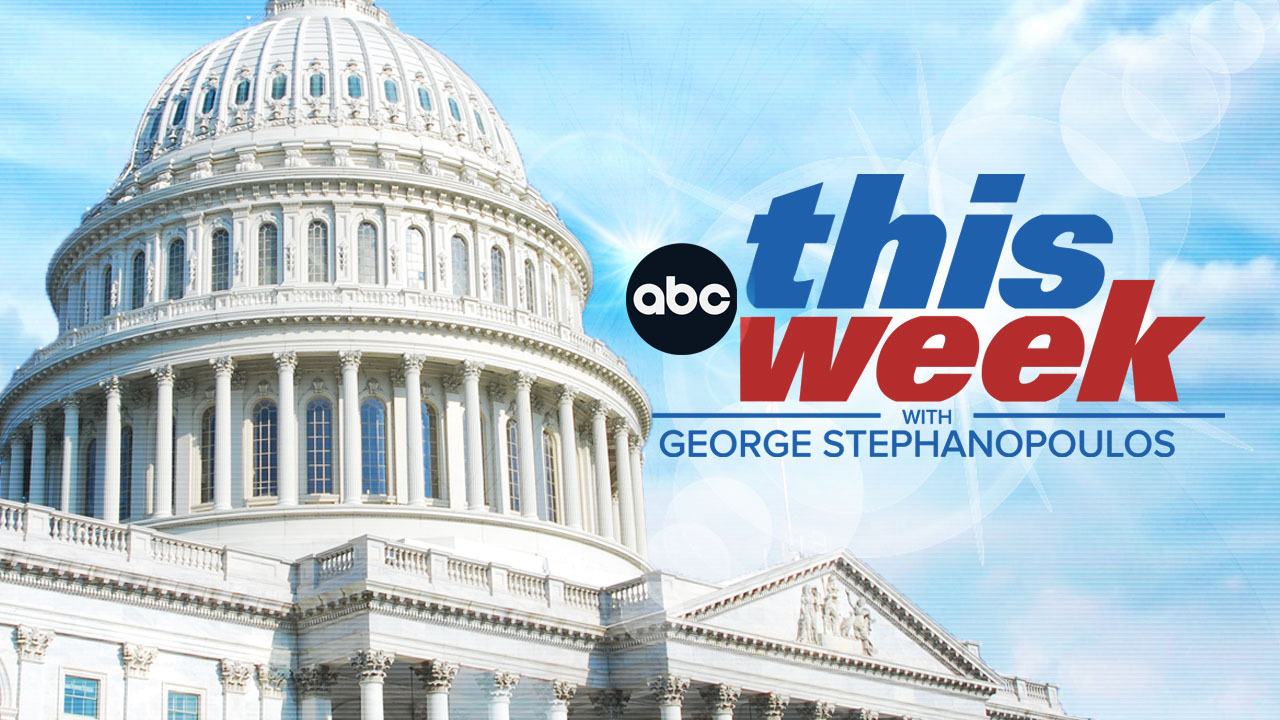WHEN: Today, Tuesday, May 7, 2024
WHERE: CNBC’s “Squawk Box”
Following is the unofficial transcript of a CNBC exclusive interview with SEC Chair Gary Gensler on CNBC’s “Squawk Box” (M-F, 6AM-9AM ET) today, Tuesday, May 7. Following is a link to video on CNBC.com: https://www.cnbc.com/video/2024/05/07/sec-chair-gensler-on-crypto-regulation-right-now-investors-arent-getting-the-required-disclosures.html.
All references must be sourced to CNBC.
ANDREW ROSS SORKIN: Joining me now right here in Washington for an exclusive interview is SEC Chair Gary Gensler. And we get to see each other in person this morning. It’s nice to see you.
GARY GENSLER: Great to see you, Andrew.
SORKIN: So one of the things I wanted to ask you is when you look at the headlines today around what the SEC is doing and what your priorities are, it’s hard to tell how much of your focus today is on the stock market writ large versus the world of crypto and trying to figure out the future of Ethereum and other things. How do you see it?
GENSLER: Well, I see it this way. We oversee $110 trillion capital market. About half of that’s the stock market. Half, as you might know, is the bond markets and other markets.
SORKIN: Right.
GENSLER: Crypto is a small piece of our overall markets. And — but it’s an outsized piece of the scams and frauds and problems in our markets because without prejudging any one token, much of this field is noncompliant with the protections of our securities laws. And so thus, you end up with like an outsized ratio of journalist questions and crypto journalists to market cap.
SORKIN: But is that a function also of the fact that that’s where your attention is, too?
GENSLER: No, it’s a — it’s a function of where your attention is. Think about it. I’ve been on your show, what, a dozen times? And every show, you ask about crypto. And my guessing is this will be a majority crypto interview. While the capital markets are $110 trillion. So it’s also about where the financial media is focused.
SORKIN: Well, I want to ask you actually about a whole bunch of things in the classic stock market.
GENSLER: I’m looking forward to it.
SORKIN: But let me ask you this. Vlad Tenev of Robinhood, you delivered a Wells notice to them. I know that you’re not going to want to speak directly to them. But I do want to read you, because what’s interesting is literally just yesterday he put out a statement effectively attacking you and the SEC. Brian Armstrong from Coinbase said effectively, welcome to the club. I mean, all this goes on to Twitter.
GENSLER: Well, just so that the listeners in the American public can understand, we have a really important responsibility as being a cop on the beat and ensuring that people that are asking you to put your money into buy or sell securities are following the law so you get disclosures, that you get certain protections. And we have live in-court litigation with at least one of those companies, Coinbase, in front of judges at this point in time.
SORKIN: What is the state of play, though, with Robinhood to the extent that you can discuss it? And for those investors out there who are watching this morning who might have money at Robinhood, what are they supposed to think about these news reports?
GENSLER: Look, I can’t speak to any one company. But stepping back from it, the field of crypto assets, without prejudging any one of them, many of those tokens are securities under the law of the land, as interpreted by the U.S. Supreme Court. So we follow that law. And you, the investors, are not getting the required or needed disclosures about those assets. And so this is earnings seasons right now, Andrew. Everybody’s asking about what’s the earnings release and how many companies are beating earnings or falling behind and so forth. Where’s the disclosures from these crypto tokens similar to these season earnings releases?
SORKIN: Well, let me ask you this. Ultimately, and I think this is the big question in crypto land right now, is Ethereum a commodity or is Ethereum a security? And therefore, will there one day be an ETF? That’s the fundamental question on the table in crypto land. You agree?
GENSLER: You’re the one that’s out there asking the questions. All I would say is, to me, the fundamental question is, is how do we ensure that the American investor is protected? And right now, they’re not getting the required or needed disclosures. And the intermediaries in the center of this rather centralized market generally are conflicted and doing things we would never allow the New York Stock Exchange to do. The New York Stock Exchange is not allowed to trade against the investors.
SORKIN: OK, so let me ask you about this. You’ve seen the consensus lawsuit, and I know you have a well’s notice with them as well. This is Patrick Henry saying the following, and I want you to respond to it. “Just months after a federal judge sanctioned SEC enforcement lawyers for lying in court, new evidence shows that Chair Gary Gensler himself misled Congress. The testimony of the Financial Services Committee last April, Chair Gensler refused to answer questions about the SEC’s classification of Ether. And new court filings show this was an intentional attempt to misrepresent the commission’s position.”
GENSLER: We speak to Congress directly in hearings like that and also directly to members, and we share with them accurately what we’re doing. So the viewers can also understand we don’t speak about whether we have an investigation or whether we don’t have an investigation, and we don’t speak about whether somebody is, in our opinion, not following the law, unless we actually bring a case. So we stay quiet on many questions that you might ask at this —
SORKIN: Right.
GENSLER: — live interview or even in a congressional hearing.
SORKIN: But ultimately, should investors — there’s a lot of folks who bought Ethereum expecting that one day there will be potentially an ETF and that it will be considered a genuine security that’s tradable on these exchanges. Will that happen?
GENSLER: Again, that’s something in front of our commission right now. We’re a five-member commission, and those filings will take up at the appropriate time.
SORKIN: Is that something from a timing perspective, though? This is an election year. This administration may be the administration come next year and may not be the administration. How does that impact the work you’re doing?
GENSLER: I’m just focused on how we can do the most for 330 million Americans. What we can do to drive efficiency, resiliency, competition in the equity markets, the Treasury markets, the fixed-income markets. And, yes, also addressing some of the activity in the crypto markets where actors are not uniformly following the law. They’re just — there’s a lot of — a lot of people have lost their hard-earned funds in the field that you seem to be so fascinated by.
SORKIN: I’m going to go to something else that people are fascinated by that’s not crypto that I think you can talk about because the case is closed. The auditing firm for Trump Media. And we’ve been following Trump Media as a stock now, which, of course, former President Trump, is the majority shareholder, was charged with, quote, “massive fraud.” This is the accounting firm, not the company itself.
GENSLER: The BF Borgers.
SORKIN: Can you explain what the fraud was and to the extent that investors should be thinking about this?
GENSLER: Well, so, we have a system here in the U.S. where if you want to raise money from the public, you have to get audited by a firm to check the numbers, to make sure that the numbers are accurate. And there’s auditing standards. This small firm, BF Borgers, that had well over 300 public company clients, audit clients, was very small and did not follow the standards, didn’t follow the standards of having extra partners reviewing their files. They, at times, as we put out in this settlement, had misled their clients about the actual work they were doing, even taking prior work and just copying and pasting into later work and the like. And so, yes, last week we settled. And those public companies, there was about 350 of them, their auditor chose to settle and not appear before the SEC again.
SORKIN: Let me ask you about Trump Media. A lot of folks have watched this stock move in ways that seem to defy at least historical conventions of the kind of metrics that we’re all used to. As the head of the SEC, as somebody who’s responsible for the integrity of the markets, what do you make of something like that?
GENSLER: So, we’re also paid to be merit neutral. Investors get to decide as long as they get the full, fair, and complete and truthful, I would say, information. They’re not getting that in crypto.
SORKIN: Right. You think — you think they’re not getting it in crypto?
GENSLER: I — I —
SORKIN: You genuinely think?
GENSLER: Genuinely think they’re not getting that in crypto. And if they are a crypto security, it’s required and needed. Public companies need to do that as well, but their auditor, the gatekeeper matters, and this is a case where a gatekeeper failed those 350 companies and the investors on the other side of those companies.
SORKIN: Let me just drill into this for one more second, though. There’s an idea with Trump Media, for example, and sometimes with other meme stocks, that they are moving in ways that may not be attached to metrics because the metrics don’t matter, because the, quote, “investors” are investing in it, if you even call it investing, for a different purpose. Does that make sense to you or not?
GENSLER: Look, I — I’ve been around capital markets for over four decades, and absolutely —
SORKIN: Some people would call it manipulating the market, though. That’s — that’s — that is the accusation that some people would say there are people effectively trying to manipulate it for reasons that are other than just trying to get the highest value.
GENSLER: So, manipulation is not allowed in our markets, in essence, misleading the public and with an intent to move that price and so forth. But you are allowed, every individual is allowed to form their own view, and that’s one of the beauties of our capital markets. It’s the tens of thousands and millions of people can do their own research and form their own views.
SORKIN: What’s good in front of this, though, is that some people think it is a financing vehicle for a political campaign.
GENSLER: Again, I’m not — I’m not going to speak — I — as much as you try, I’m not going to speak on any one company, but what’s important is, is their disclosures are accurate and that folks aren’t in the market front-running or trading on insider information or manipulating any one of the thousands of securities that trade.
SORKIN: Different question. Just this morning, we put out a report, actually, in DealBook around Blackstone and their BREIT fund, around their valuations. There’s lots of questions on Wall Street about how a lot of these REITs and semi-liquid REITs effectively mark their books. Some use third parties, and those numbers are defined by the third party with no optionality. In Blackstone’s case, it appears that they have allowed themselves disclosed to have latitude in how they come up with those numbers, and they pay themselves based on those numbers. And so if you can actually make the numbers your own, and you can pay yourself based on those numbers, how do you look at something like that?
GENSLER: So, stepping back, again, from any one company, valuations are very important in the fund business, whether they’re registered funds that you can buy in the public called mutual funds or even private funds like private equity and venture capital alike. Those valuations are really critical for — and the law says that you’ve got to do those in an appropriate way. And so that’s what’s critical. And why is it critical? It’s for people who are investing that don’t overpay and people that are redeeming that they get the right valuation. So that’s how we look at it, really, is to make sure that any fund advisor who’s doing the valuations is following the letter of those valuations.
SORKIN: I would love to sit with you here for a lot longer, but we’re effectively out of time. I mentioned there’s a presidential election year. Do you want to be part of this administration if the president wins again? And would you want to remain the chair of the SEC? Would you want to be the Treasury Secretary? What do you want to do next?
GENSLER: I’m just focused on this job, but this is one of the greatest privileges. I mean, anybody who’s listening, I’m honored to serve my third president as the 33rd Chair of the SEC, overseeing $110 trillion capital markets. This is a terrific job where we can actually help Americans, investors and issuers, for decades to come. So my term is well into 2026, and if I have the honor to continue to serve, I look forward to it.
SORKIN: OK, Gary Gensler, thank you for coming in this morning. It’s nice to see you. Thank you so much.


